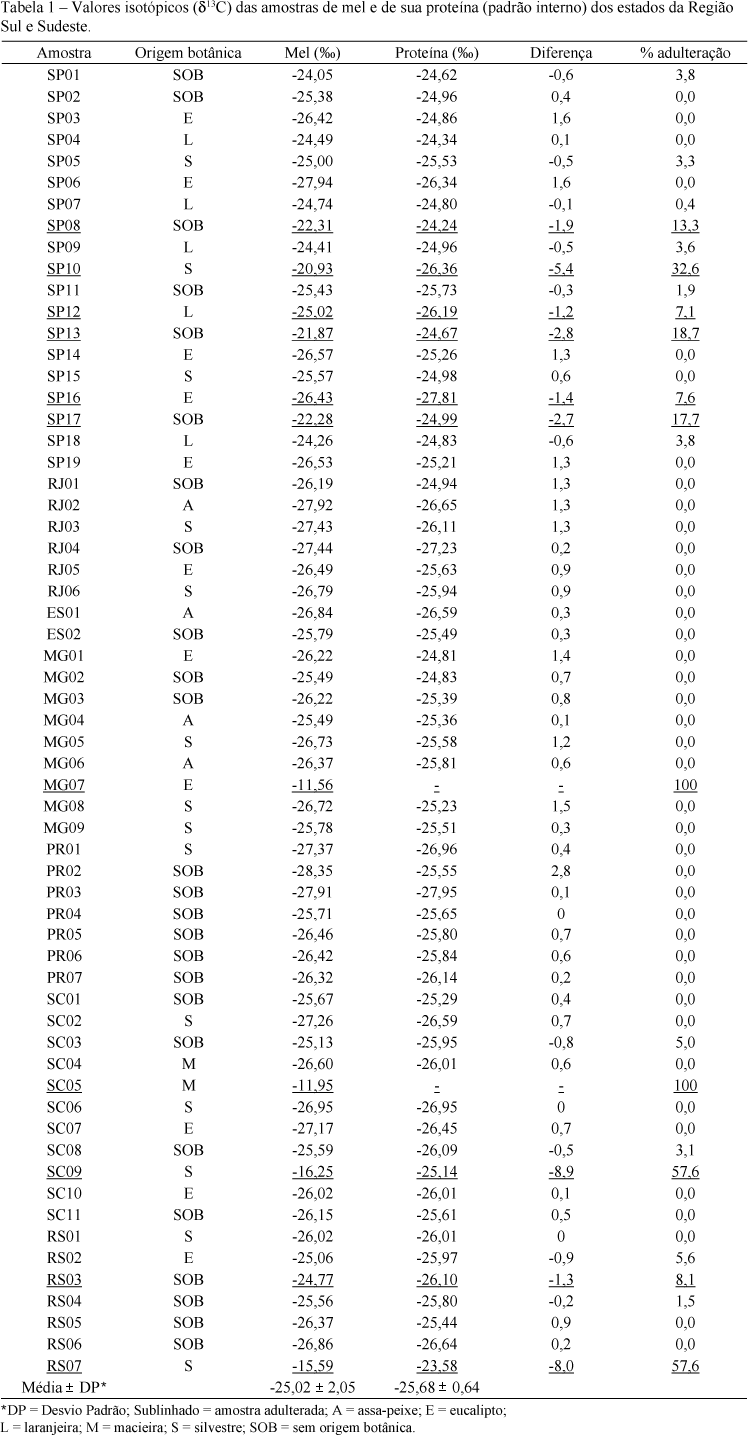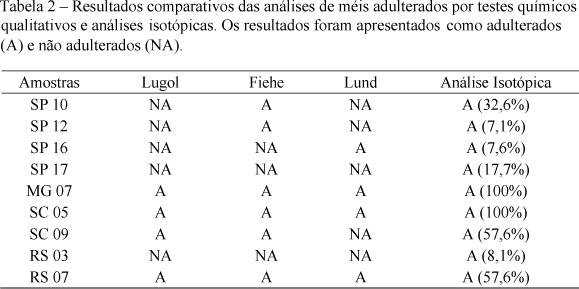The aim of this study was the isotopic evaluation of honey traded in the Southern and Southeastern Brazilian regions, to detect fraud. Commercial samples, registered in the municipal, State or Federal Inspection Service, were collected and submitted to combustion in the EA 1108 CHN Elemental Analyzer and analyzed in the DELTA-S (Finningan Mat.) isotope ratio mass spectrometer. The isotopic values (δ13C) of in natura honey were compared to their respective proteins (internal standard). Samples whose difference between the isotopic value of protein and honey was equal or inferior to -1‰ were considered adulterated. The samples considered adulterated were submitted to qualitative chemical tests which were unable to show adulteration for some of them. Among the 61 samples analyzed, 18.0% were adulterated; 11.5% in the Southeastern and 6.5% in the Southern region. Unlike chemical tests, isotopic analysis has shown to be efficient to identify and quantify adulteration in commercial honey.
Honey; fraud; stable isotopes; carbon-13; IRMS




